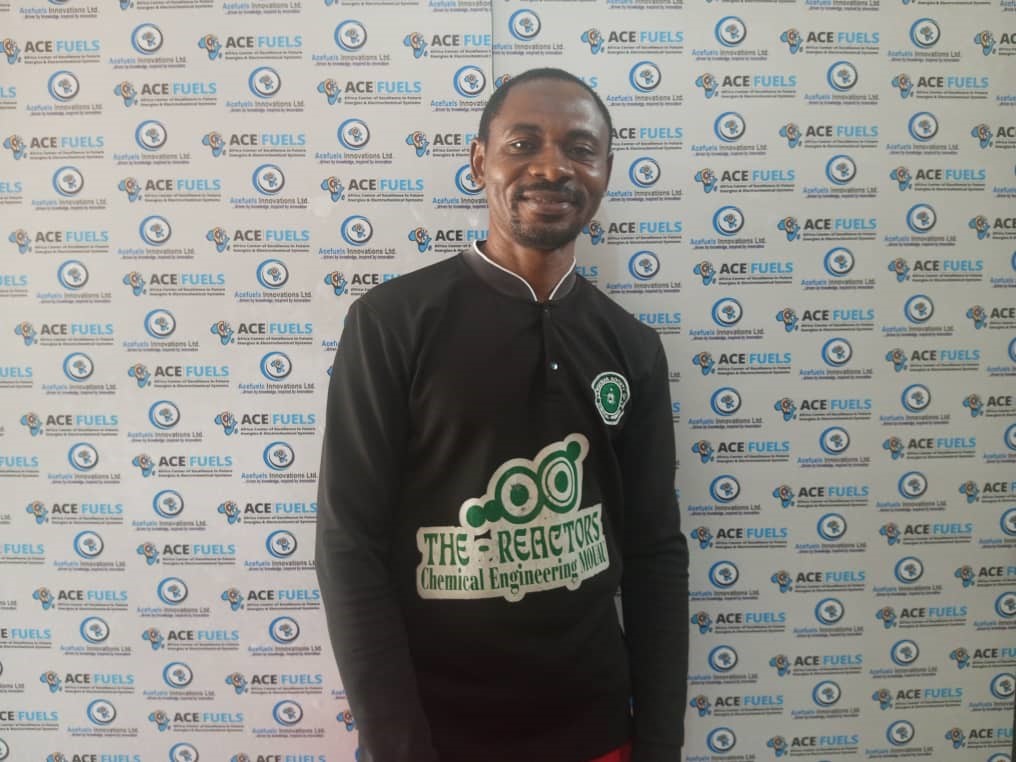PhD Student Future Energies
Meet Ugwu Boniface, one of the participants of the Global Challenge Lab 23 and a PhD Student of Future Energies at ACE-FUELS FUTO. His passion for providing global solutions like SDG 7 birthed gis career at ACE-FUELS and motivated him to participate in the Global Challenge Lab 2023. This year’s challenge focused on Access to Affordable and Clean Energy, UN SDG 7. The task was to develop ideas for technology-driven solutions that could contribute to the advancement of SDG.7. He shared his experience with the media team.
What was the competition about?
1 Global Challenge Lab 23 is yearly competition organized by a UK-based company, Futurize that brings great thinkers and innovators to proffer solutions to the most global pressing issues. This year’s challenge focused on Access to Affordable and Clean Energy, UN SDG 7. The task was to develop ideas on technology-driven solutions that could contribute to the advancement of SDG 7. To achieve the aim, Imperial College Enterprise Lab, Tsinghua University’s x-lab and Technical University of Munich are working with 18 global university partners to bring together hundreds of students and alumni to grow their international network, gain new skills and create new ideas that can help achieve UN SDG 7. The SDG7 was divided into three (3) tracks; Track 1, Track 2, and Track 3 for Accessibility, Resilience, and Energy Usage and Efficiency, respectively, each with its challenge question. For the competition, participants were allowed to form international teams according to their choice of the track, generate ideas, select ideas and choose one idea and do the video pitch of the idea for the competition. The teams that took the first, second and third positions were awarded £4,000, £3,000, and £2,000 prizes, respectively.
Why did you sign up for it?
2 I signed up Global Challenge Lab 23 (GCL 23) because the rural people of Nigeria and sub-Saharan African countries do not have access to affordable and clean energy. UN SDG 7 Report stated that about 733 million people on the globe do not have access to electricity and about 80% of the people were from Sub-Saharan Africa. Access to power is a catalyst for the socio-economic development of any society. Because I am a Nigerian and from a rural community, I feel the impact of the lack of access to affordable and clean energy. I wanted to solve this challenge with my idea on direct biomass flow fuel cell.
What was your biggest takeaway?
3 My biggest takeaway at the GCL 23 was the possibility of networking and working remotely with other people from different countries and cultural backgrounds using App-based networking tool. With that, I was able to share my idea on direct biomass fuel cell as a technology that should be developed to address Track 1 Challenge. Direct biomass flow fuel cell uses lignocellulosic biomass, such as agro-wastes, forest residues, and even grasses as fuel to generate electricity by electrochemical means. My motivation was that lignocellulosic biomass is ubiquitous and is affordable by any person irrespective of the person’s status. Moreover, fuels in Nigeria are quite costly such that the people who have electricity generating sets can hardly afford fuels any longer since subsidy on fuels has been removed. A direct biomass flow fuel cell, a substitute power system that should be developed by improving its power output through suitable catalyst design. It is more efficient, noiseless, and pollutes less. This idea made my team to be among the 28 teams that were selected for the next round.
What were your experience? Challenges and prospects
It was not easy task working with different people from different counties and cultural affiliations and on different time zones to agree on an idea, develop it and video-pitch it within 12 days. My participation in the competition impacted my managerial ability positively, especially managing time and harnessing ideas.
My experience at GCL 23 was awesome, challenging, educative, informative and innovative.
Why were you passionate about the competition?
I was passionate about SDG 7 because rural people of Nigeria do not have access to affordable and clean energy and with my idea, I hope to solve this challenge. This is my research focus and I hope to succeed.

